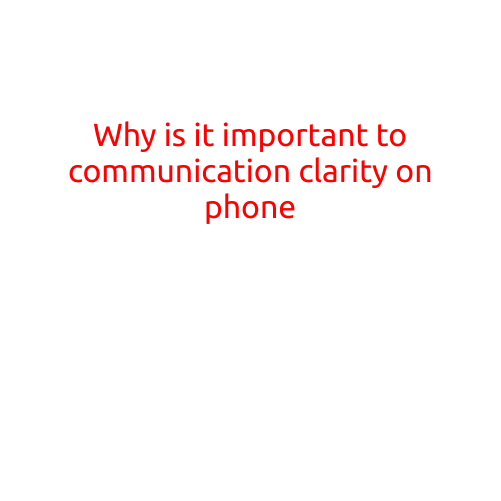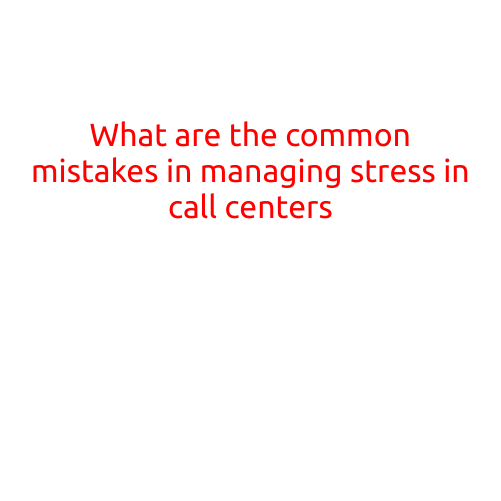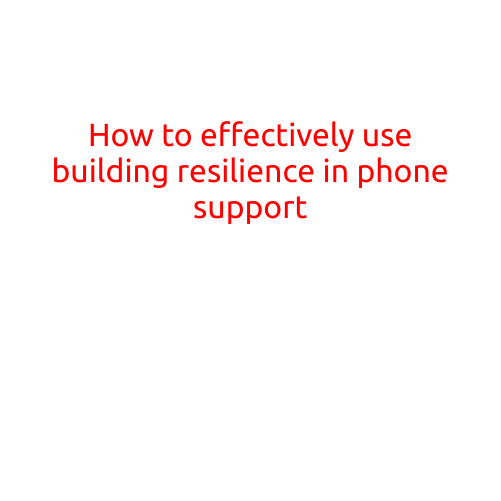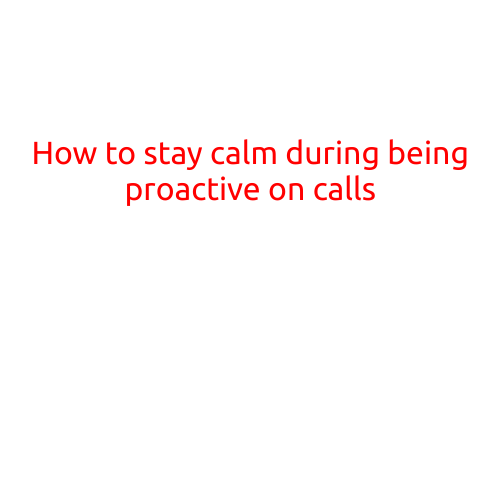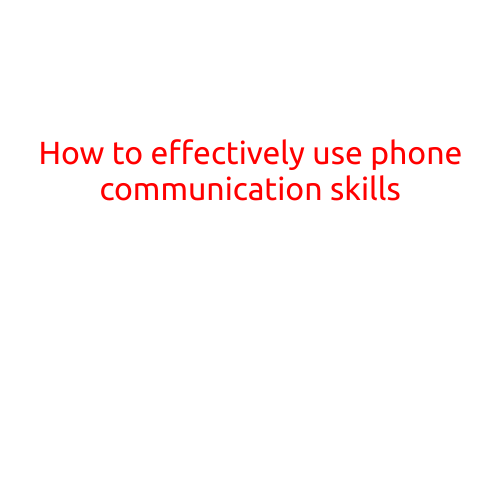
How to Effectively Use Phone Communication Skills
In today’s fast-paced world, phone communication has become an essential part of our daily lives. Whether it’s for personal or professional purposes, effective phone communication skills are crucial to convey messages accurately, build relationships, and resolve issues efficiently. However, with the increasing number of distractions and noise pollution, it can be challenging to make a lasting impact through phone conversations.
In this article, we’ll explore the key strategies and techniques to effectively use phone communication skills, helping you to improve your verbal and non-verbal communication, and achieve your goals.
1. Prepare Before Making the Call
Before making a phone call, take a few minutes to prepare. This includes:
- Clarifying the purpose of the call
- Gathering any necessary information or documents
- Identifying the key messages you want to convey
- Practicing your tone and pace
By preparing ahead of time, you’ll feel more confident and focused, which will help to improve the overall quality of the conversation.
2. Create a Positive First Impression
The first few seconds of a phone call are crucial in setting the tone for the entire conversation. Make sure to:
- Answer the phone promptly and professionally
- Use a clear and friendly tone of voice
- Introduce yourself and clearly state the purpose of the call
By creating a positive first impression, you’ll be more likely to establish trust and rapport with the other person.
3. Use Active Listening Skills
Active listening is an essential component of effective phone communication. To improve your listening skills:
- Focus on the speaker’s words and tone
- Avoid interrupting or finishing the speaker’s sentences
- Repeat back what you’ve understood to ensure clarity
- Ask open-ended questions to encourage discussion
By actively listening to the other person, you’ll be able to better understand their needs, concerns, and perspectives.
4. Use Verbal and Non-Verbal Cues
Verbal and non-verbal cues play a significant role in phone communication. To improve your verbal and non-verbal skills:
- Use a clear and concise tone of voice
- Speak at a moderate pace
- Use pauses to emphasize important points
- Smile, even if you’re speaking on the phone
By using verbal and non-verbal cues, you’ll be able to convey confidence, empathy, and enthusiasm, which are essential in building strong relationships.
5. Manage Distractions
Noise pollution and distractions can be challenging to overcome when making phone calls. To minimize distractions:
- Find a quiet and private space to make the call
- Turn off any background noise or distractions
- Focus on the conversation and avoid multitasking
By managing distractions, you’ll be able to maintain your attention and focus on the conversation.
6. Follow Up and Follow Through
After the phone call, it’s essential to follow up and follow through on any commitments or agreements made. To do so:
- Send a summary of the conversation via email or text
- Confirm any next steps or action items
- Follow up with a phone call or email to check on progress
By following up and following through, you’ll be able to build trust and credibility with the other person.
Conclusion
Effective phone communication skills are crucial in today’s fast-paced world. By following the strategies and techniques outlined in this article, you’ll be able to improve your verbal and non-verbal communication, build strong relationships, and achieve your goals. Remember to prepare before making the call, create a positive first impression, use active listening skills, use verbal and non-verbal cues, manage distractions, and follow up and follow through on any commitments or agreements made. By doing so, you’ll be able to effectively use phone communication skills and achieve success in your personal and professional life.
